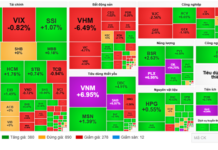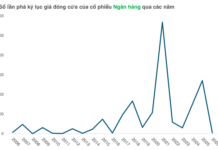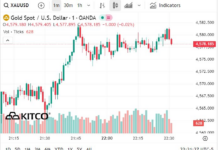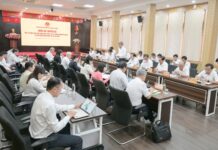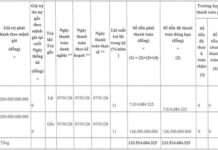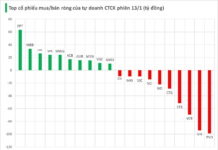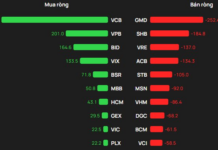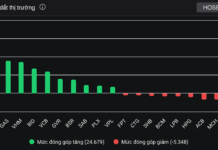During a constituent meeting in Hanoi ahead of the 10th session of the 15th National Assembly on September 30, General Secretary To Lam dedicated significant time to discussing land issues. He highlighted that while the state regulates prices for gasoline, electricity, and many other commodities, land prices are left to councils and consulting firms to determine based on market rates. This has led to market manipulation, price inflation, and hardships for citizens.
Numerous Inefficiencies in Land Management
The General Secretary pointed out that small, irregularly shaped plots of land, which are often unusable, are auctioned off at exorbitant prices by land speculators. This artificially inflates the value of surrounding land, spanning thousands of hectares. He emphasized that revisions to the Land Law and Planning Law must ensure efficient and equitable land use.
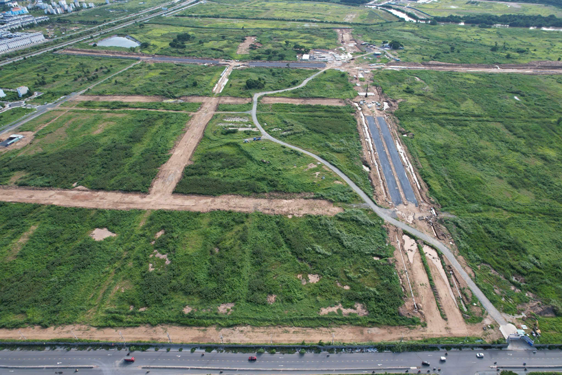
A plot of land in the outskirts of Ho Chi Minh City now sells at a significantly higher price compared to a few years ago.
Over the years, numerous incidents have served as costly lessons. A notable example is the 2025 land auction in Soc Son, Hanoi, where Pham Ngoc Tuan bid up to VND 30 billion per square meter, hundreds of times the actual value of VND 40 million per square meter. After winning the auction, he forfeited the deposit and was sentenced to three years in prison for violating asset auction regulations. Similarly, in Thanh Oai, Hanoi, in February this year, price manipulation resurfaced when 54 plots covering over 4,400 square meters were bid up to double their starting price. Subsequently, numerous speculators forfeited their deposits, further destabilizing the market.
Beyond land prices, the housing market in several localities, particularly Hanoi and Ho Chi Minh City, has witnessed unprecedented price surges.
Various factors have been identified, including speculation, price manipulation, limited supply due to prolonged legal entanglements, and delays in determining land use fees, all of which escalate investment costs and drive up final sale prices.
Vo Huynh Tuan Kiet, Director and Head of Residential Project Marketing at CBRE Vietnam, attributed the surge to significant changes following Ho Chi Minh City’s consolidation into a megacity. Infrastructure development, particularly the metro system, ring roads, and transit-oriented development (TOD) models, has attracted substantial foreign investment. “However, coupled with land price adjustments and real estate tax policies, the market has established a new price baseline, especially in suburban areas,” Kiet analyzed.
Establishing a National Standard Land Price Framework
In reality, land prices are a critical factor influencing the real estate market and directly impacting socio-economic life. Irrational fluctuations, speculation, and group interests have distorted the market, complicating matters for both citizens and businesses. Many experts argue that a transparent, scientific, and unified mechanism is needed to align land prices with their true value, fostering sustainable development.
Dr. Nguyen Si Dung, former Deputy Chief of the National Assembly Office, believes the most fundamental solution is to establish a national standard land price framework. “An independent national land valuation council should be formed to set prices based on extensive data, expert consultations, and rigorous oversight. Allowing individual localities to determine prices poses significant risks of group interests,” he stressed.
Concurrently, developing a unified national land database is a priority. This system must record all transactions, tax information, and credit details in real-time, accurately reflecting supply and demand while eliminating speculative transactions.
Dr. Nguyen Si Dung also suggested that to deter speculation, the government should impose anti-speculation taxes and progressive taxes on unused land or short-term transactions. Additionally, mechanisms to recapture land value increments should be strictly enforced. When public infrastructure investments increase land values, the resulting gains should benefit the public through taxes, fees, or auctions, rather than accruing to private individuals. He also proposed allowing civil transaction prices to deviate from state prices within a reasonable range but with a cap, balancing flexibility and stability.
Defining a Land Use Strategy
Based on market realities, Dr. Pham Viet Thuan, Director of the Institute for Natural Resources and Environment Economics in Ho Chi Minh City, noted that the new land price schedule under the 2024 Land Law has revealed significant shortcomings. “Within a year, the new land prices increased by 2.3 to 38 times compared to pre-law levels. Simultaneously, Decree 103/2024, which mandates a 100% tax when converting land to residential use, has exceeded public capacity, leading to revenue shortfalls and broader socio-economic impacts, particularly on livelihoods and welfare,” he cited.
This expert believes the issue stems from the flawed construction of the land price schedule under Decree 71/2024, necessitating adjustments. “Determining a land use strategy within macroeconomic regulation is crucial. Therefore, land prices must remain stable within each province or city, with the application of a coefficient K for adjustments.
Theoretically, coefficient K is a state land management tool that limits price fluctuations. Thus, the revised Land Law should stipulate that the new land price schedule, effective from January 1, 2026, be based on pre-law prices, using coefficient K with a 3%-5% adjustment range. This approach will contribute to long-term macroeconomic stability,” Thuan recommended.
He also emphasized that land is a production and service resource, and its price must be balanced to stimulate investment and job creation. Curbing speculation is imperative, as combating land waste is essential for national prosperity. Instead of raising land prices, the government should consider land use fees and urban infrastructure charges to ensure more sustainable revenue.
Developing Housing for Genuine Needs
Dr. Nguyen Van Khoi, Chairman of the Vietnam Real Estate Association, stressed that developing housing for genuine needs is the key to sustainability, rather than allowing the market to be driven by speculation. He analyzed: “Policies and special mechanisms for social housing and mid-range commercial housing projects should be strengthened, while high-end inventory should be flexibly converted to affordable housing to prevent resource wastage.”
Khoi also advocated for simplified legal procedures and transparent planning, especially during administrative unit mergers, to provide businesses with a foundation for long-term investment. Another critical issue is managing risks from delayed infrastructure projects and stalled developments, which significantly harm citizens.
Khoi further proposed that the government establish a National Housing Fund and Local Housing Funds to provide capital support, regulate supply and demand, and develop rental housing. Public-private partnerships (PPPs) should be encouraged in social housing and satellite infrastructure development. Simultaneously, mechanisms to monitor and control speculation and price manipulation must be tightened to ensure “sustainable assets” for citizens.
Vĩnh Long and Đồng Tháp Launch Series of Social Housing Projects
As of now, Vĩnh Long province is implementing 10 social housing projects, eligible to sell over 1,300 units, while Đồng Tháp province is executing 9 projects, but only eligible to sell more than 500 units. However, the implementation process faces numerous challenges, particularly in terms of capital.
Restoring Land Prices to Their True Market Value
The government should implement an anti-speculation tax, imposing progressive taxation on vacant land or short-term transactions.
Who Can Afford the $4,300 per Sq. Ft. Luxury Condo Market?
According to experts, the segment of apartments priced at 100 million VND per square meter is not tailored for the majority of buyers seeking a primary residence, as their income levels cannot sustain such high costs.

